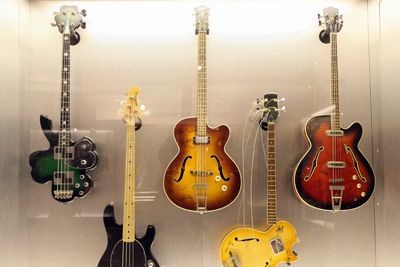When we think of synthesizers, it's tough to set aside our preconceptions. We might think of fuzzy, 8-bit video game soundtracks and impossibly catchy pop songs from the 1980s. We might think of a lush, digital orchestra emanating from a keyboard. We envision knobs and dials and cables strewn all about. We might even think of a software program we control with our computer's keyboard.
Whatever we imagine, in the nearly 50 years since the debut of the first commercial synthesizer, its impact has probably gone deeper than any of us even realize. The sounds generated by synthesizers are part and parcel of the music that bounces around in our eardrums: pop music, hip hop, film scores, even rock and roll. But Dr. Tom Rhea, a professor in the Electronic Production and Design Department at the Berklee College of Music, says that synthesizers have offered a very significant contribution to the way music is played beyond the sounds they create: Form no longer has to follow function. Acoustic instruments like guitars, cymbals, and clarinets have to be built a certain way to get a very particular sound. "With electronic instruments -- namely the synthesizer -- all that is out the window," Rhea says [source: Rhea].
Advertisement
In other words, a synthesizer can make more than one type of sound. It can create tones that are both familiar and otherworldly -- a flute, an ocean swell or a Martian's ray gun -- as well as voices that have never been conceived of. Synthesizers achieve these ends by manipulating and combining the fundamental qualities of a sound to create something new. Contrary to popular misconception, the word "synthesizer" is not meant to imply that the sounds produced by the device are synthetic. Rather, it refers to synthesis, the process of combining the various constituent elements -- in this case, the fundamental properties of sound -- in a way that forms a new whole.
While we're at it, let's set aside another misconception: Synthesizers are not voodoo boxes that spit out music without any input. At the end of the day, a synthesizer is just another instrument that requires someone at the controls to make music.
What are the basic components of a sound, and how does a synthesizer change them? Let's take a look.



